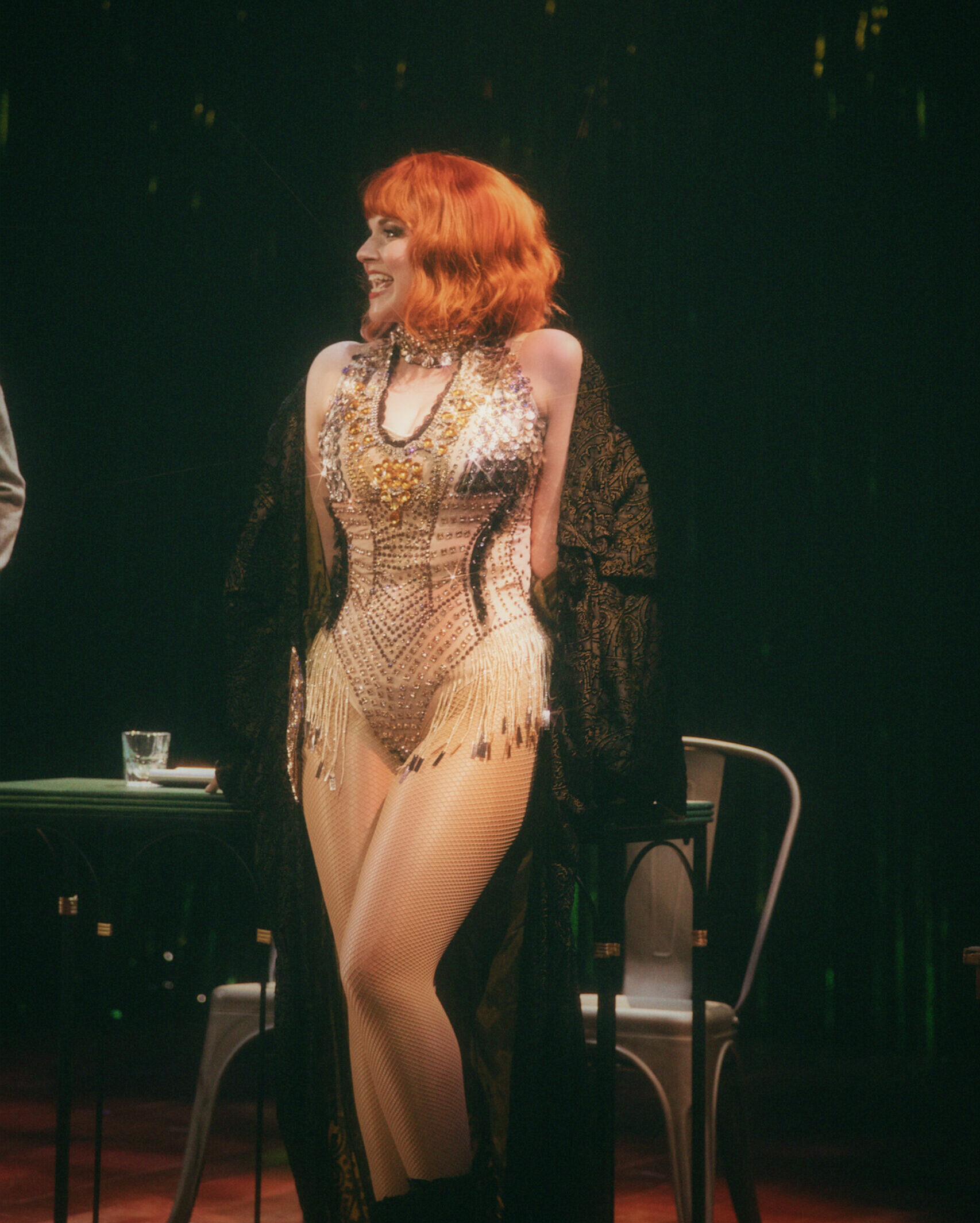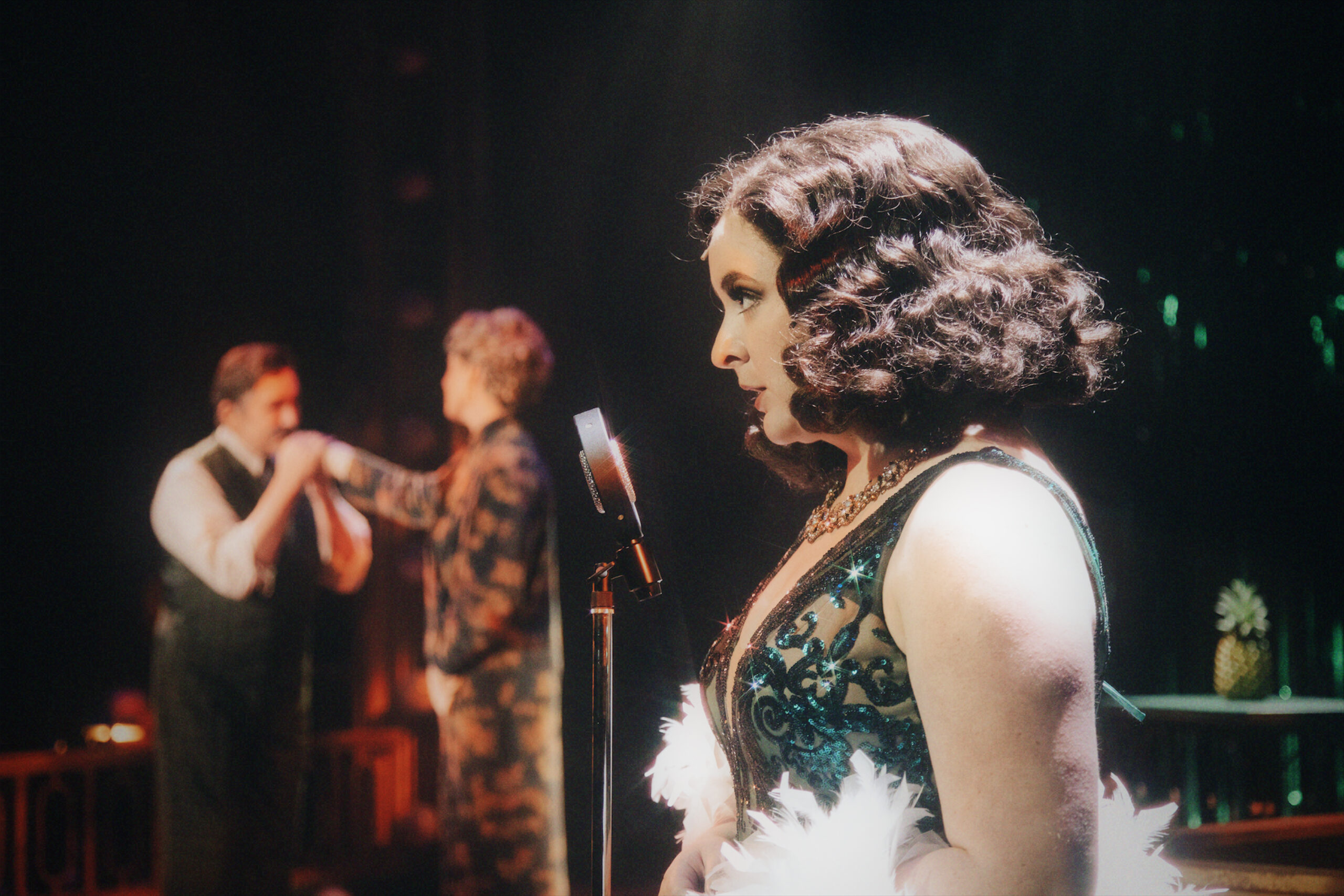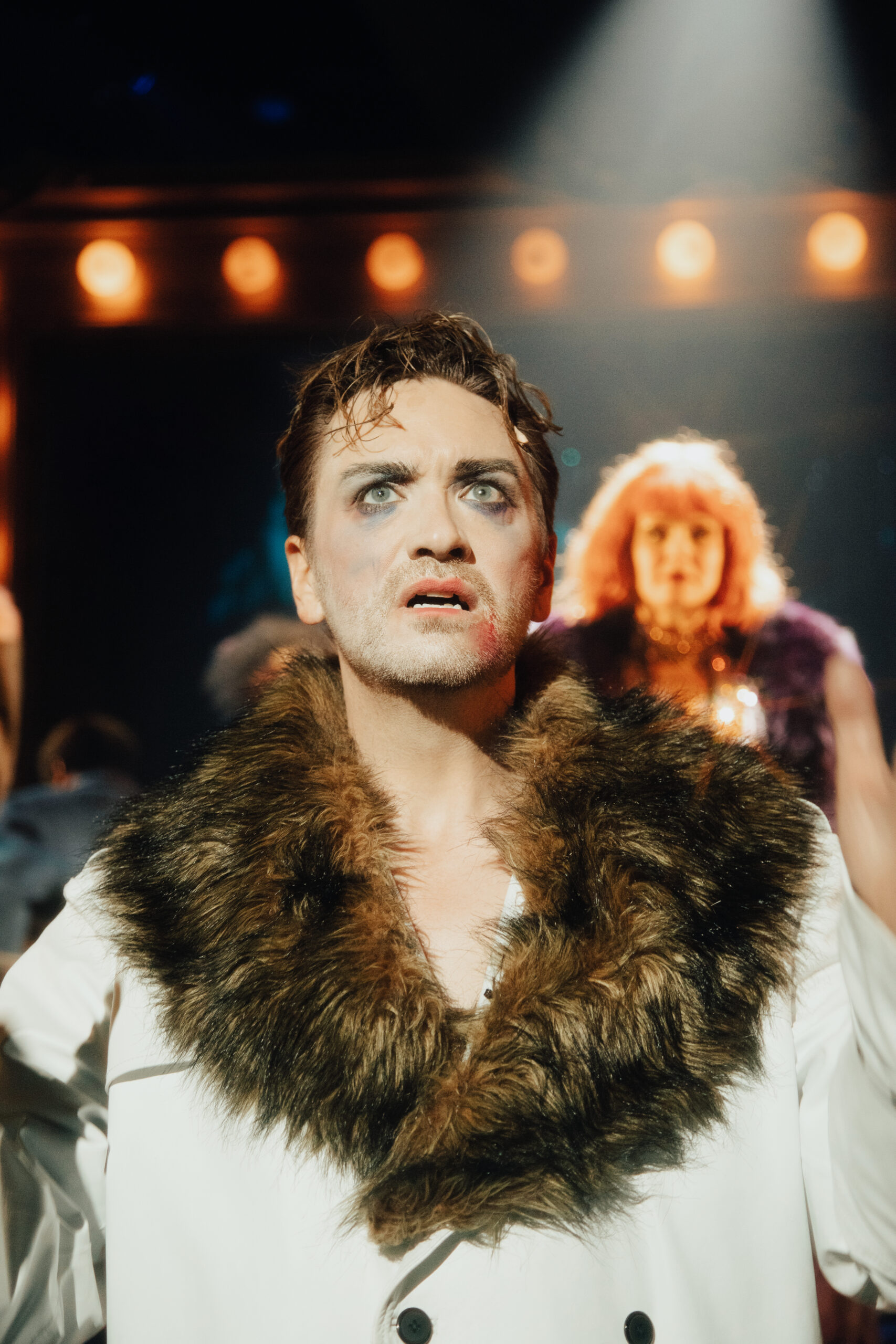Come to the Cabaret at Studio Tenn

This is Studio Tenn’s first year in their new digs, the Turner Theater. Though a bit difficult to find within the maze of parking spaces, shops, and eateries, it was worth the trip.
In a pleasant surprise, Paul Vasterling, Artistic Director Emeritus of the Nashville Ballet, served as both director and choreographer. Technical matters of getting sets on and off stage were smooth, seamless, and the use of the space, lined with lit globes was masterful, particularly evocative with the first few rows of audience seating arranged with closely spaced nightclub tables and chairs. Though part of the original staging, the scene where characters are within arms’ reach, but still call one another on black telephones seemed offkey. Otherwise, the minimalist set onstage—a bed, a table, a few chairs, all quickly removed—was quite effective; the overall staging was excellent.
Prior to the overture downbeat, Studio Tenn’s artistic director Patrick Cassidy gave a bit of the history of a show that originally premiered in 1966. With each revival, this tale of the hedonistic days in Berlin overlapping with the rise of Nazism in Germany, retains its strength to entertain and move audiences worldwide, winning multiple awards with each incarnation.
Part of its continuing relevance today mirrors the current international zeitgeist where some citizens glory in, and eagerly embrace, the possibility of authoritarianism, while more fear and flee it, as others fiddle as Rome burns, and yet more bury their heads in the sand, deciding to ignore or accept whatever is to be. All this results in, quite simply, a great show. Like South Pacific, Oklahoma, West Side Story, a bigger societal picture shines through the smaller lens of one island, or one region, or one neighborhood. In this case, one nightclub.
The KitKat Club is both a real and metaphorical locus where the Emcee runs the show and two ill-fated couples, Cliff and Sally (an American writer and English showgirl), Herr Schulz and Fraülein Schneider (both Germans: a widowed Jewish greengrocer and a single middle-aged proprietor of a boarding house) meet and separate. Ancillary characters, Ernst Ludwig (Matt Logan) and Fräulein Kost (a smuggler who joins the Nazis and a prostitute working out of the boarding house) represent the impending political and moral threats facing all of Germany.

All the voices were strong and effective, matching the quality of the tight pit band (Stephen Kummer, conductor), awkwardly divided onto two sides of the stage. The acting also revealed a depth of talent with the best matches of talent-to-role going to the Emcee (Brian Charles Rooney), Cliff (Caleb Shore), Herr Schultz (Matthew Carlton), and Kost (Jordan Tudor). Their clear grasp of their characters allowed the audience to settle into the story.
Interestingly, despite Vasterling’s deep levels of experience, much of the choreography amplified the most visceral weaknesses in the cast—their bodies. With only one exception, most of the women did not seem to know what to do with their bodies. It may just be transferring a pure classical ballet sensibility to a more carnal environment, but the sensuality of decadent nightclub dancers and licentious ladies of the evening was noticeably absent, as if good girls on rumspringa were trying too hard to be bad. Only Tudor as Kost, had the subtle sexuality that made her depiction of a prostitute convincing.

Megan Murphy Chambers, on the other hand, not only didn’t have the English accent the Sally Bowles character required, but was implausible as a “seen everything” showgirl sleeping her way to the top, each undulation approached with practiced determination. When singing major numbers, she and Julie Cardia as Fraülein Schneider both stood rather stiffly as they belted out the show’s potent lyrics in true Broadway style. The quality of their voices was so bold, so skilled, it almost overshadowed the ongoing discomfort I felt at some indefinable absence, some missing element. I was finally able to define it when Rooney sang.
The emcee role was the most challenging both vocally and in acting, going from flirtatious through bored laissez-faire, from sexual hijinks, through growing awareness of the threat against him and his community. At the end, dressed in prisoners’ stripes and a decal representing the Nazi pink triangle, his poignant despair emanated throughout the room. Some nearby audience members joined me in gentle, but audible gasps. Before that, though, when he sang “I Don’t Care Much,” he moved almost as little as Chambers and Cardia, but each move, each head tilt, each hopeless raise of the eyes toward the heavens was so meaningful that the light went on. That is what I’d been missing, the connection of body to emotional moment, acting and singing with your whole self.
In the end, though, this was a well-produced program of solid quality that definitely made for an evening that was both enjoyable and thought-provoking. I hope this company will consider the occasional move past the greatest hits into a play by a local playwright. Perhaps a night of one-acts? Their skill would give talented writers in the Nashville area a serious chance to promote their works, just as the Nashville Ballet allows its dancers to choreograph a talented company. Seeding the growth of a new generation of playwrights would add to the gift Studio Tenn already provides audiences.
This is the final show of the season, but if it is any indication, 2024–2025 Rockin’ Retro season tickets, starting with Little Shop of Horrors and ending with Jersey Boys, would be well worth the cost.



